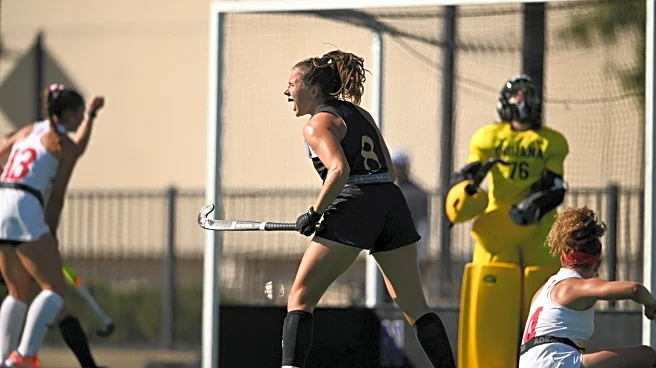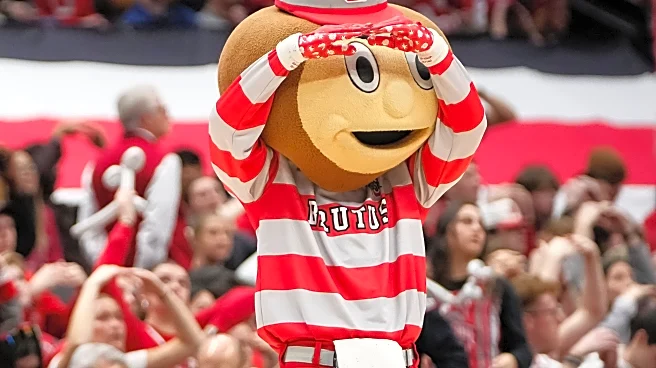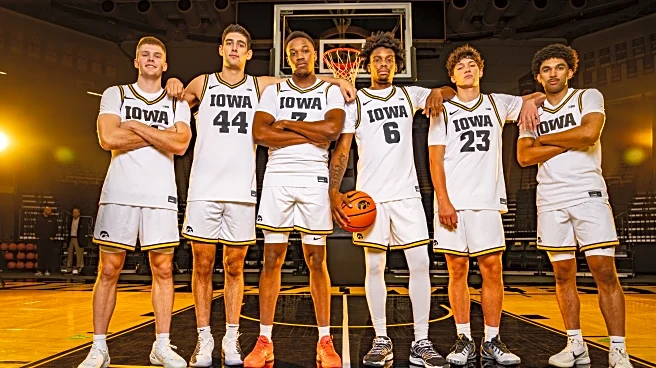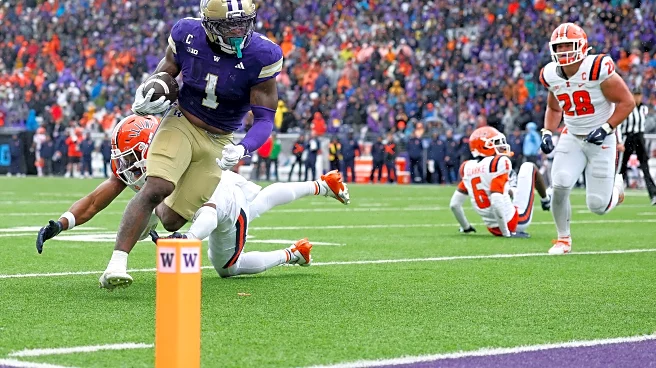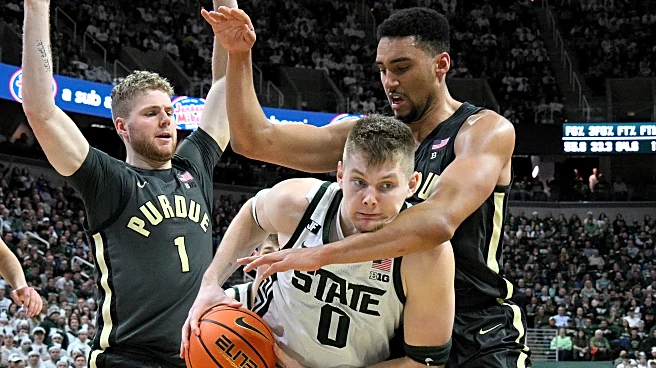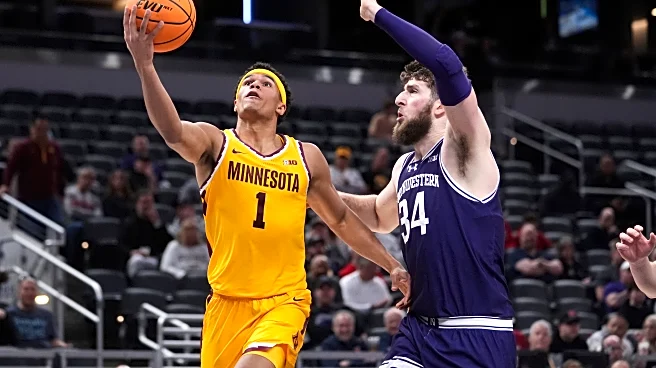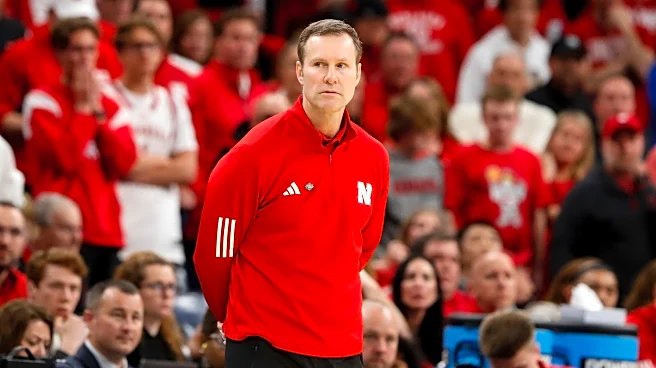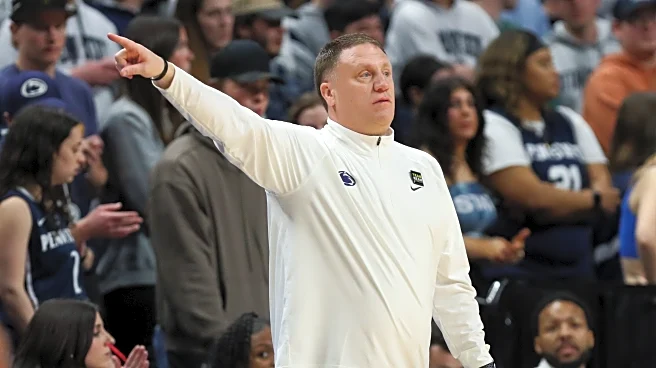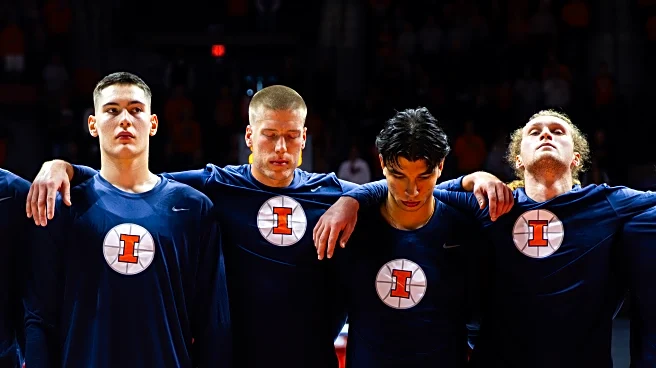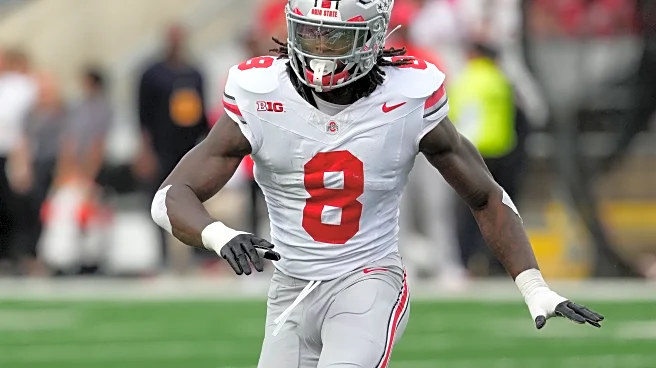As the sun set on Michigan’s Phyllis Ocker Field, Northwestern field hockey struggled to find answers against Massachusetts during the 2024 NCAA semifinals. But everything changed when midfielder Maddie
Zimmer intercepted the ball in Minutewomen territory five minutes into the fourth quarter.
With the rest of the field ahead of her, Zimmer spotted Northwestern forward Ashley Sessa to her left. Her only thoughts during her 50-yard carry were to protect the ball and hand it to Sessa once she reached NU’s goal circle. Eventually, Zimmer followed through, setting up Sessa’s backhand shot that sent Northwestern to the national championship game.
Later, Zimmer told her parents that UMass wasn’t her best game, that she didn’t know what she was thinking during certain plays. She wasn’t feeling well before the Final Four, missing Northwestern’s last few practices before leaving for Ann Arbor. In her postgame press conference, she directed the attention toward Sessa for finishing what she started.
Zimmer may make her game-winning assist seem simple, but don’t be fooled: the reality is that nobody in the country can quite replicate what she did.
“I tell our sports information people to have a video camera out at every practice,” Northwestern assistant coach Will Byrne said. “Because she will do something where you’re like, ‘Holy crap. That’s highlight worthy and really, really special.’”
Her 2024 NFHCA Player of the Year award and the Olympic rings etched on her forearm aside, Zimmer isn’t the conventional superstar. A two-way midfielder who shines between the thirds, she’s not always the main character in match summaries that use goals and big saves as plot points. A nautral introvert, her words in team huddles are few and far between.
Watch Northwestern play for three minutes, though, and it’s obvious that No. 8 with the captain’s band around her shin is the best player on the field. Zimmer is a lethal threat on both sides of the ball, which follows her like a magnet as she breaks tackle after tackle. She plays the game at 2x speed and orchestrates big plays when it matters most. NU’s coaches can’t help but anoint her with lofty descriptors, ranging from “woman amongst girls” to “best in the nation.”
“She’s gonna go down as one of the best athletes, male or female, that has ever played for this university,” Northwestern head coach Tracey Fuchs said of Zimmer. “And maybe not that many people will know it.”
In her final year as a Wildcat, Zimmer already has the resume of Northwestern field hockey’s first Honda Award winner since 1994, a two-time national champion and two-time Final Four Most Outstanding Player. She could have gone off into the sunset after her team’s 2024 title, but she’s back to win a third. As Zimmer captains a squad hungry for a repeat, she holds the title of storied veteran, the only player who knew a world before Northwestern won its first.
With the clock winding down on her time at NU, summarizing Zimmer’s career with awards and box scores doesn’t do her justice. Instead, her story is one of a player who found a program that wanted more than just her talent, and together, they took each other to new heights.
Initially bored by the sport on grass, which elementary school Zimmer described as “pushing a brick with a feather,” she didn’t enjoy field hockey until she could play fast.
After moving from Minnesota to the field hockey-laden landscape of Hershey, Pennsylvania, Zimmer’s mother, Erin, convinced her daughter to try the sport on astroturf. Impressed by the improved pace and a newfound ability to carry the ball while running on a smoother surface, Zimmer stuck with field hockey from then onward.
By sixth grade, people were telling Zimmer’s parents she had Division I potential.
Part of Zimmer’s talent is genetic — she credits her speed to her mother, who played field hockey and lacrosse at William and Mary. Her father, Scott, was a soccer goalie at Richmond. But she’d also tape a wrench on her stick, practicing for hours with the creation to strengthen her wrists. She’d set up obstacle courses in her garage and once shot a ball that tore a hole through the door. An avid reader, she sees herself in Carrie Soto, Taylor Jenkins Reid’s fictional tennis player with an obsessive drive to become the greatest of all time.

The combination of Zimmer’s introversion and work ethic sometimes didn’t sit well with those around her. Her peers would tease her for trying too hard while preparing for high school district games, which she didn’t understand. “Why wouldn’t you try hard?” Zimmer’s mother remembers her asking.
Zimmer was sought after as a top-five player in the nation, but college recruiting was difficult — she rarely spoke on visits and came home concerned that she acted like a “wet sandwich.” Her parents recall some players being put off by her behavior, mistaking her shyness for arrogance.
“People don’t realize how introverted she is. They just think if you’re a female and you’re good at something, you should be super bubbly and outgoing.” Erin Zimmer said. “People were just like, ‘Oh, she must be mean. She’s not a nice kid,’ and they didn’t know her at all.”
Maddie Zimmer initially didn’t want to go to Northwestern, which was too far from home. Although Byrne sensed she didn’t enjoy her unofficial visit, the NU coaching staff never stopped pursuing her, attending her Hershey field hockey and lacrosse games while staying connected with her throughout her high school years.
During that time span, Zimmer befriended older Northwestern players like Peyton Halsey and Kayla Blas by playing together on U.S. junior national teams. She also eventually warmed up to the idea of visiting Northwestern for an official tour. On that tour, she lived in the dorms with other players, making it impossible for them to fake their interactions. It didn’t matter.
While every school in the nation wanted her on the field, Zimmer felt Northwestern was where she could find a place off it. Byrne had a way of making her come out of her shell on the phone. Fuchs pulled her aside on her official visit to establish that the team valued her not just for her hockey, but as a person. Zimmer’s future teammates, who shared her team-oriented competitiveness, made her feel like she’d fit in by being herself.
“Normally, I absolutely hated visits, because I was just not super outgoing. So I didn’t really want people to talk to me all the time, because I would just get nervous,” Zimmer said. “But I felt really at home with those girls, and at the end of the day, that was the dealmaker.”
Zimmer committed to Northwestern as a high school junior in October 2018. When she called Fuchs to break the news and began with “thank you,” the coach assumed she’d turn the ‘Cats down. But then Zimmer affirmed she wanted to be a Wildcat, and upon hanging up, Fuchs jumped so high her head nearly hit the ceiling.

At the time, Zimmer was the highest-ranked recruit in Northwestern history. But she was just the first domino to fall, with the top-10-ranked Lauren Wadas and Annabel Skubisz to follow. Soon enough, the Wildcats amassed the strongest class of 2020 in the nation, one that would be the final puzzle piece toward their first-ever national title.
Northwestern was one of the better Big Ten teams at the time, but hadn’t qualified for a Final Four since 1994. Zimmer saw the team’s potential years before it was fulfilled.
“I wouldn’t have picked this school if I didn’t think we could contend for those Big Ten titles and national championships,” Zimmer said. “I don’t think I ever was like, ‘We’re gonna change the program’ because the program has always been great. But bringing it up to that next level was something that my class and the class below me were really able to do.”
The accolades rolled in as soon as Zimmer got to Evanston. She won Big Ten Freshman of the Year after the 2020-21 season. During Northwestern’s first national championship run in the fall of 2021, she was a first-team All-American and scored in the Wildcats’ 2-0 title game victory over Liberty. In 2022, she repeated first-team All-American honors while her team reached its second consecutive NCAA championship game, falling to North Carolina.
Zimmer’s Northwestern career paused in 2023, when she redshirted her senior year to help the U.S. National team qualify for and later compete at the 2024 Paris Olympic Games. She trained full-time with Team USA in Charlotte, North Carolina, where she played a 9-to-5’s worth of field hockey while her strength training, nutrition and rest were heavily monitored.
It was the type of regimented life that Zimmer always wanted.
“You’re a full-time professional athlete, and you’re just immersed in this culture of competition and people who want to succeed. I think she thrived off that environment,” Erin Zimmer said. “She loves to go out and do things, but I think she also loves to be in bed by nine o’clock — and when you’re with people that love that same lifestyle, you don’t feel as strange.”
Maddie Zimmer became a better version of herself after Paris, and others noticed. Byrne saw a more disciplined player in the weight, film and recovery room, someone who played fast against the world’s best and almost had to slow down at the Division I level. Her parents saw an already mature individual raise the bar even higher. On the field, there were visible improvements in her defense and passing abilities.

With progress, expectations grew. Northwestern was the preseason No. 1 team entering 2024, despite the North Carolina squad that beat NU in the 2023 national championship returning its top talent. Zimmer and Sessa were likely the reasons why, the “Olympian” label hanging above their heads.
“There was some scrutiny of some of the Olympic athletes that came back,” Zimmer said. “Everybody expects you to be significantly in this other kind of world than everybody else, but you’re not.”
Zimmer spent her summer passing by Simone Biles in the Olympic Village seemingly every other day, but she’d still distance herself from the larger-than-life environment to focus on Team USA’s next match. She carried that mentality into Northwestern’s 2024, blocking out noise as pressure to win a second title ballooned with each victory.
Instead, Zimmer focused on being intentional. Before each game, she visualized everything from how her dribbling felt on the pitch to the way she held her stick on defense. Warmups became about how she could make each pass as fast and accurate as possible. Rather than seeing other players as they were on the pitch, she noted their exact positions in relation to her.
“I see a forward ready to make a lead to the outside. I see a midfielder ready to post up in the middle if I need them. I have space to beat this girl on the outside. I was able to be hyper-aware of myself on the field,” Zimmer said. “It was less habit, like ‘I’m just gonna receive and go.’ It was more actual decision-making and knowing why I was making that decision. It got a lot quicker and it got a lot clearer in the time that I was away.”
Alongside her improvements as an athlete, Zimmer was named one of Northwestern’s three captains for 2024. Leading by example came naturally, but the Olympics helped her grow confident in raising her voice.

The change was obvious late into Northwestern’s Big Ten tournament semifinals match against Rutgers, when the two teams started arguing. Walking into the center of the conflict, Zimmer extended her arms over her teammates and directed them away from Rutgers. She then asserted to the Wildcats that the altercation could not ruin their season.
“I heard a couple of her teammates tell me later, ‘We had not heard Maddie talk like that before.’” Erin Zimmer said. “She was very strong in saying, ‘just don’t engage.’”
Additionally, Sessa said last season that Maddie Zimmer didn’t pressure her toward Northwestern when she entered the transfer portal during their Olympic redshirt year. But when she did come to Evanston, the midfielder helped her adjust to the new environment.
“She’s just easy to follow, right? She’s not obnoxious, she’s not conceited, she’s very humble and she does the right thing,” Fuchs said of Zimmer. “Those are leaders that people want to follow, whether it’s your boss, you’re in a business, or your captain on your team. She’s just a good person who takes care of her teammates.”
Northwestern finished its 2024 season with a program-best 23-1 record, a campaign that Zimmer featured heavily in. She finished with a career-high 10 goals and 12 assists. She zigzagged through Michigan defenders to set up Wadas’ overtime goal that clinched the Big Ten regular season title. She initiated her coast-to-coast assist for Sessa in the NCAA semi-finals. In the national championship, a 5-0 victory over Saint Joseph’s, she contributed two goals and two assists.
Byrne would say the Wildcats won that championship game well before the clock hit zero. During warmups, he brainstormed bullet points to tell his team — tidbits about playing St. Joe’s, how to prepare and so on.
Upon just one glance at Zimmer going through her pregame motions, Byrne realized he didn’t need to say anything. His captain was ready.
Zimmer concluded 2024 by winning the NFHCA National Player of the Year and Honda Awards, both given annually to the best player in Division I field hockey. After her year-long marathon of achieving almost everything a college field hockey player could ask for, she decided to return to Northwestern for her COVID-19 year.
By 2025, Zimmer’s class of 2020 teammates were gone. Aside from Princeton graduate transfer Grace Schulze, she’s the oldest player at Northwestern, to the point where her teammates call her “Meemaw.” After accomplishing so much, what brings her back is the chance to win one last time.
“Once you get a taste of winning once or twice, it’s not enough,” Zimmer said. “Last year was obviously fantastic, and I was really proud of what we all accomplished. But this is a new season, and I don’t think that just because we’ve done it once means that I’m satisfied at all.”
Now a two-time captain for Northwestern, Zimmer still needs time to herself and — according to her mother — the 60+ books she read in 2025. But that doesn’t mean she’s the same quiet high schooler scared of expressing herself on recruiting trips.

Instead, Zimmer’s leadership shows up by being the first to leave the locker room before practice or cross the finish line in a running drill. By taking younger teammates out to work on skills, or helping them through homesickness. It means fixing mistakes that were accepted in Zimmer’s freshman year, when Northwestern was fighting for third place in the Big Ten, but not when the team is a perennial national title contender.
“It’s called presence. Maddie has presence, and she doesn’t have to say a word,” Fuchs said. “She just has that competitive spirit, and people will follow.”
Zimmer reserves her voice for when she believes her team needs it most. One came in Northwestern’s early-season contest against Boston College, when the Eagles pulled their goalie after the ‘Cats went up 1-0 in the fourth quarter. With NU already man-down following a Sessa red card, Zimmer pulled everyone together and told them not to let Boston College’s chaos affect how they’d close out the game. Shortly afterward, the Wildcats won 2-0.
With one game left in the regular season, Northwestern is 15-1 with outright possession of the Big Ten regular-season title. And while Zimmer only ranks sixth on the team in points, she’s written all over the Wildcats’ DNA.
Against Princeton, Zimmer turned defense into offense by passing to Schulze, who connected with Sessa to cut Northwestern’s deficit to one late in the fourth quarter. In Northwestern’s Big Ten title-clincher against Michigan, a Zimmer run from the sidelines to the goal circle helped put the Wildcats up right after the Wolverines scored the equalizer. When she has possession, her entire team speeds up.
“We are the fastest team in the country, and so much of that has to do with Maddie carrying the ball,” Byrne said. “You can smell when she’s about to win the ball — the team starts to creep up and get in behind the defense even earlier.”
Right now, the focus is on winning title three for Northwestern. But as Zimmer nears the end of her five-season tenure as possibly the best Wildcat to pick up a field hockey stick, the question of legacy looms.
Those around Zimmer want her to be viewed by what she has done: win titles, work hard, be a good teammate and contribute to a championship culture that will exist for years after she leaves. And all that can be true.
But for Zimmer herself, it’s all about the program that embraced her for who she was, and the one she helped push to the top of college field hockey in return.
“I want my legacy to be that pride in Northwestern, like I gave it my all every time I had that jersey on,” Zimmer said. “And I want people to remember that when I’m gone.”
